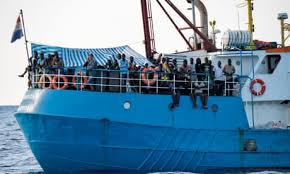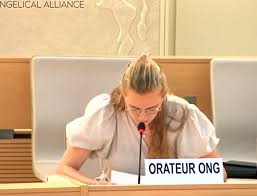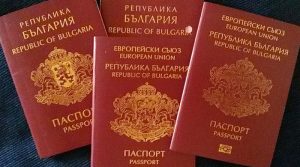Crew of migrant rescue boat acquitted in Italy after seven-year ordeal

Rome: Judges in Sicily have acquitted all crew members of an NGO rescue boat who had been accused of aiding and abetting illegal migration, in a case seen by activists as a symbol of the criminalisation of those who have sought to help at-risk refugees and migrants at sea.
Friday’s verdict, after seven years of proceedings, followed a surprise turn of events in February when prosecutors in Trapani unexpectedly requested the charges be dropped owing to a lack of evidence.
The Iuventa, a rescue vessel operated by the German NGO Jugend Rettet, is believed to have saved 14,000 people during its time in the central Mediterranean. Its crews would find distressed vessels and pass those saved on to European military ships or the Italian coastguard.
In response to the large numbers of people being rescued and returned to its ports, and the lack of support from other EU member states, the Italian government struck a deal with the Libyan coastguard, which has close links to Libyan militias, under which the EU would fund it to find and return those in the Mediterranean to Libya.
The Iuventa was seized in August 2017 at a port on the Italian island of Lampedusa. It was claimed in official documents relating to the seizure of phones and computers that there was evidence the rescuers had collaborated with people-smugglers, an allegation that has been strenuously denied.
It later transpired that the crew had been bugged and that informants had been placed on other rescue ships. The Italian newspaper Domani revealed that magistrates in Trapani had secretly recorded reporters’ phone calls with rescuers and allegedly exposed the journalists’ sources. Italy’s justice minister in 2021 sent inspectors to Sicily after the reports.
Trapani prosecutors claim that the file containing the journalists’ wiretaps data was passed on to them by the former lead prosecutor and that they intend to ask a judge to destroy it.
After prosecutors unexpectedly admitted on 28 February that there was no basis for finding any wrongdoing on the defendants’ side, Francesca Cancellaro, one of the Iuventa lawyers, said the case should not have gone to trial in the first place.
“We are pleased with the prosecution’s change of mind after seven years,” she said. “However, this is not how a state of law operates. Charges should only be pressed after a thorough investigation and collection of all available evidence. Initiating a trial without proper groundwork is unjust and places undue burden on the defendants.”
The case of the Iuventa has become emblematic of what are claimed to be increasing attempts to criminalise refugee aid workers, and highlights the challenges encountered by those dedicated to safeguarding human rights.
Groups who assist asylum seekers are reporting a disturbing trend of escalating intimidation, with aid workers facing direct threats, including being held at gunpoint and having their phone communications monitored by government authorities.
The defendants said the investigation and trial meant the Iuventa had been forced to stop helping those in distress. Sascha Girke, one of the acquitted, said: “As a result of a flawed investigation driven by political motives, thousands of people have died in the Mediterranean or [been] forcibly returned to war-torn Libya. Meanwhile, our ship has been left to decay, and we have been entangled in year-long proceedings.
“Additionally, it squandered immense resources, including state funds amounting to some €3m, in a bid to obstruct and defame civilian sea rescues. Our case serves as a glaring symbol of the strategies European governments are putting in place in order to prevent people from reaching safety, leading to and normalising the death of thousands of people.”
Dariush Beigui, another defendant, said that if the public prosecutor’s office had looked at the evidence from the start, “they would never have been allowed to seize the Iuventa and we would have been spared seven years of stress”.
As part of the case, Médecins Sans Frontières (MSF) and other organisations were investigated for aiding and abetting illegal immigration.
Dr Christos Christou, the MSF international president, said: “These unfounded accusations have attempted to tarnish the work of humanitarian search and rescue teams for years. They were intended to remove vessels from the sea and to counter their efforts of saving lives and bearing witness. Now these accusations have collapsed.
“Our thoughts are with our colleagues from MSF and other organisations who have been living under the weight of accusations for legitimately doing their jobs: saving people in distress at sea, in full transparency and compliance with the laws.”
Tommaso Fabbri, a former MSF mission head who was involved in the case, said: “Saving lives is not a crime, it is a moral and legal obligation, a fundamental act of humanity that simply must be done.”





